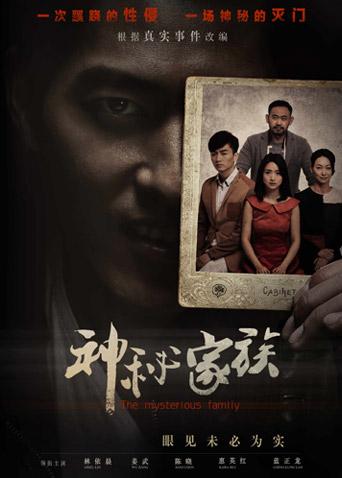三对互为朋友的情侣几乎在同一时间打算生小孩成为父母。他们年龄不算大,死亡拥有很酷而成功的事业。理性主义同时又物质主义,死亡他们在市中心自家公寓的阳台里种植有机番茄、喝本地烤制的咖啡和雨果鸡尾酒、以及绝不买不带苹果标志的电子设备。他们坚信人们可以养儿育女而并不成为大腹便便的中产阶级。然而孩子们诞生下来之后他们开始手足无措并遇到一系列的问题,对抚养孩子的方式各持己见。而且孩子一旦生下来,便将成为一项一生也无可挽回的工程。
三对互为朋友的情侣几乎在同一时间打算生小孩成为父母。他们年龄不算大,死亡拥有很酷而成功的事业。理性主义同时又物质主义,死亡他们在市中心自家公寓的阳台里种植有机番茄、喝本地烤制的咖啡和雨果鸡尾酒、以及绝不买不带苹果标志的电子设备。他们坚信人们可以养儿育女而并不成为大腹便便的中产阶级。然而孩子们诞生下来之后他们开始手足无措并遇到一系列的问题,对抚养孩子的方式各持己见。而且孩子一旦生下来,便将成为一项一生也无可挽回的工程。
回复 :在这片名为灵域的天地间,有一片赤澜大陆,大陆上的武者和灵器有着明确的等级划分,家族,宗派势力也有着严谨的阶级层次。在最高阶级玄天盟的带领下,人族武者和邪族千百年来一直在幽冥战场上进行着残酷的战斗。一只噬魂兽从幽冥战场的裂缝中逃入了人族居住的赤澜大陆,残忍屠杀了冯家镇和高家镇。凌家镇的少年秦烈,和从小一起长大的凌语诗,高宇,一起被命令协助玄天盟讨伐噬魂兽。秦烈没有想到,自己从此卷进了一场巨大的阴谋,为了保护朋友和挽救心爱的人,隐藏在他血脉中的力量在慢慢苏醒。
回复 :红遍大江南北的风流作曲家柳七被父亲扔出家门,不考取功名绝不能回家。身无分文的柳七在赴京赶考途中偶遇一对神秘父女,对自己的可爱女粉音儿心生爱慕。音儿以为柳七只是一个落难书生,渐渐对这位真心照顾自己的“柳树疙瘩”产生了好感。就在二人互表心意时,柳七得知音儿的父亲正是朝廷钦犯李乐天,三人早已身处阴谋漩涡。音儿失踪,李乐天惨死,柳七被神秘人带走。众人阴差阳错齐聚京城,音儿变身为奴,皇上却执意要将公主下嫁柳七。身亡的李乐天到底和皇家有什么联系?柳七和音儿又将何去何从?
回复 :The subtitle of Jean-Marie Straub and Danièle Huillet’s first feature, from 1965, “Only Violence Helps Where Violence Reigns,” suggests the fierce political program evoked by their rigorous aesthetic. The pretext of the film, set in Cologne, is Heinrich Böll’s novel “Billiards at Half Past Nine,” which they strip down to a handful of stark events and film with a confrontational angularity akin to Bartók’s music that adorns the soundtrack. The subtlest of cues accompany the story’s complex flashbacks. The middle-aged Robert Fähmel tells a young hotel bellhop of persecutions under the Third Reich; his elderly father, Heinrich, an architect famed for a local abbey, recalls the militarism of the First World War, when his wife, Johanna, incurred trouble for insulting the Kaiser. A third-generation Fähmel is considering architecture, just as the exiled brother of Robert’s late wife, returns, only to be met by their former torturer, now a West German official taking part in a celebratory parade of war veterans. Straub and Huillet make the layers of history live in the present tense, which they judge severely. The tamped-down acting and the spare, tense visual rhetoric suggest a state of moral crisis as well as the response—as much in style as in substance—that it demands.
